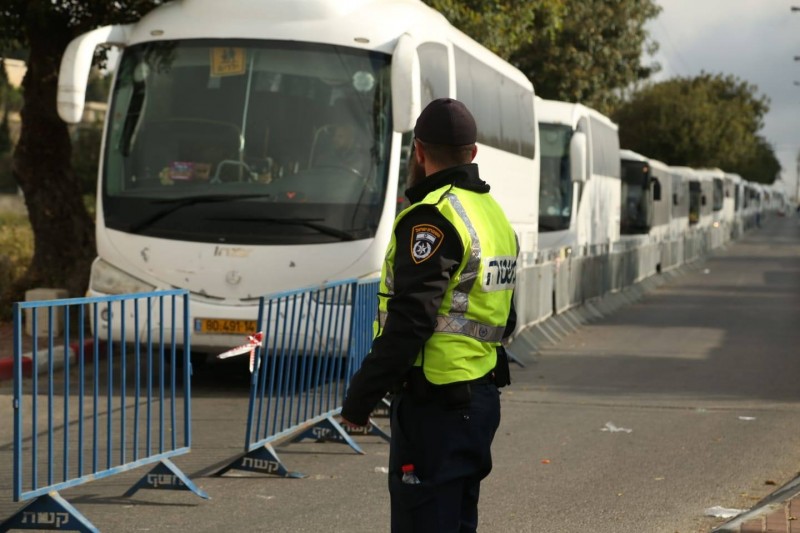Challenging Travel Ban for Sheikh Ra'ed Salah
Sheikh Ra’ed Salah is one of the founders of the Islamic Movement in Israel, and is widely respected in the Islamic world as a spiritual leader. Sheikh Ra’ed Salah served as mayor of Umm al-Fahem from 1989 to 2001, before taking on the leadership of the Islamic Movement in Israel.
On 16 February 2002, the Minister of Interior, Eli Yishai, issued an order prohibiting Sheikh Ra’ed Salah from leaving the country for six months. In the order, Minister Yishai stated that upon review of the GSS recommendations of 15 February 2002, he was convinced that the security of the state would be at risk if Sheikh Ra’ed Salah travels abroad. Minister Yishai issued this total ban on foreign travel under Article 6 of the Emergency Regulations (Foreign Travel) (1948) (as amended in 1961).
Sheikh Ra’ed Salah was informed of this order on 17 February 2002 at Ben Gurion Airport while en route to Qatar, where he was to meet with representatives of academic institutions and charity groups. The order was based solely on secret evidence, and no hearing was granted to provide Sheikh Ra’ed Salah with the opportunity to challenge it prior to its issuance.
In 3/02, Adalah and Al Meezan Association for Human Rights sponsored an ad in Ha’aretz (Hebrew) entitled, “The Violation of Freedom of Movement and the Right to Due Process of Sheikh Ra'ed Salah.” Other organizational signers were: the Arab Association for Human Rights, The Association for Civil Rights in Israel, HaMoked - Center for the Defence of the Individual, Mossawa, and Physicians for Human Rights-Israel. The NGOs emphasized that the Interior Minister’s actions severely harm freedom of speech, the right of the national minority to political liberties, and the principle of equality, and called upon him to immediately rescind the order.
In 6/02, on behalf of Sheikh Ra’ed Salah, Adalah filed a petition with Al Meezan Association for Human Rights to the Supreme Court against the Minister of Interior asking the Court to declare the February 2002 travel restriction order unconstitutional and void. Adalah argued that the order violates Sheikh Ra’ed Salah’s right to due process, his constitutional right to freedom of movement (Article 6 of the Basic Law: Human Dignity and Liberty (1992) provides that, “All persons are free to leave Israel”), and also his basic right to freedom of religion, as it prevents him from completing al-Umra pilgrimage to Mecca, Saudi Arabia. Al-Umra is one of the most important pilgrimages in Islam. Further, Adalah argued that the restriction on Sheikh Ra’ed Salah’s movement is overbroad and unreasonable. It fails to satisfy the test of proportionality, as it completely denies his right to travel outside the country for a long period of time, regardless of the purpose of his travel.
At a hearing on the petition in mid-June 2002, the Court stated that, according to secret evidence, Sheikh Ra’ed Salah’s travel constituted a threat to state security, although the Court would not identify the alleged danger. Adalah denied that Sheikh Ra’ed Salah had planned such meetings. The Court rejected the request for an injunction, and thus prohibited Sheikh Ra’ed Salah from traveling to Mecca. At the Court’s instruction, Adalah then submitted an appeal to the Minister of Interior, which was rejected on 20 June 2002.
Result: In 7/02, the Supreme Court dismissed the petition, and again upheld the travel ban on Sheikh Ra’ed Salah. The Court ruled that, after considering the secret evidence presented by the GSS and the Ministry of Interior, he was convinced that there was a “frank and earnest fear,” and even a "virtual certainty" that Sheikh Ra’ed Salah could "gravely endanger" state security if he were to leave the country. Further, the Court ruled that Sheikh Ra’ed Salah’s right to a fair hearing had been “thoroughly exercised,” although the Minister of Interior agreed to a “written hearing” (the appeal filed by Adalah to the Minister in 6/02), only after the Court held a hearing on the petition. The Court further noted that preventing an individual from leaving the country in order to perform a religious pilgrimage is an extremely grave violation of the freedom of religion. Nevertheless, the Court stated that since it is not necessary to perform al-Umra pilgrimage at a particular time of the year, Sheikh Ra’ed Salah would be able to perform the pilgrimage following the expiration of the movement restriction against him.
Note: The Minister of Interior repeatedly renewed the six-month travel ban, and it remained in effect until Sheikh Ra’ed Salah was detained in 5/03 (see below).
H.C. 4706/02, Sheikh Ra'ed Salah, et. al. v. the Minister of Interior, decision delivered on 17 July 2002.
Related Documents
Order Prohibiting Sheikh Ra'ed Salah from Leaving the Country | Available in Arabic
Emergency Regulations (Foreign Travel) Law, 5709-1948, and Emergency Regulations (Foreign Travel) (Amendment) Law 5721-1961
Regulation 6 of the Emergency Regulations (Foreign Travel) Law available in Arabic
Supreme Court Decision in HC 4706/02 Sheikh Ra'ed Salah et. al. v. Minister of the Interior (English)
Brief Biography of Sheikh Ra'ed Salah
Press Releases
Supreme Court Upholds Travel Ban on Sheikh Ra'ed Salah - 12 August 2002
Supreme Court Upholds Sheikh Ra'ed Salah Travel Ban Following Closed Meetings with GSS - 12 June 2002
Adalah Files Petition to Supreme Court: Travel Restriction on Sheikh Ra'ed Salah is Unconstitutional - 3 June 2002
Adalah and Al Meezan Challenge the Ban on Foreign Travel Issued On Sheikh Ra'ed Salah - 20 February 2002
Ad Campaign
"The Violation of Freedom of Movement and the Right to Due Process of Sheikh Ra'ed Salah"
Published in Ha'aretz, Hebrew edition - 20 March 2002
English | Hebrew















